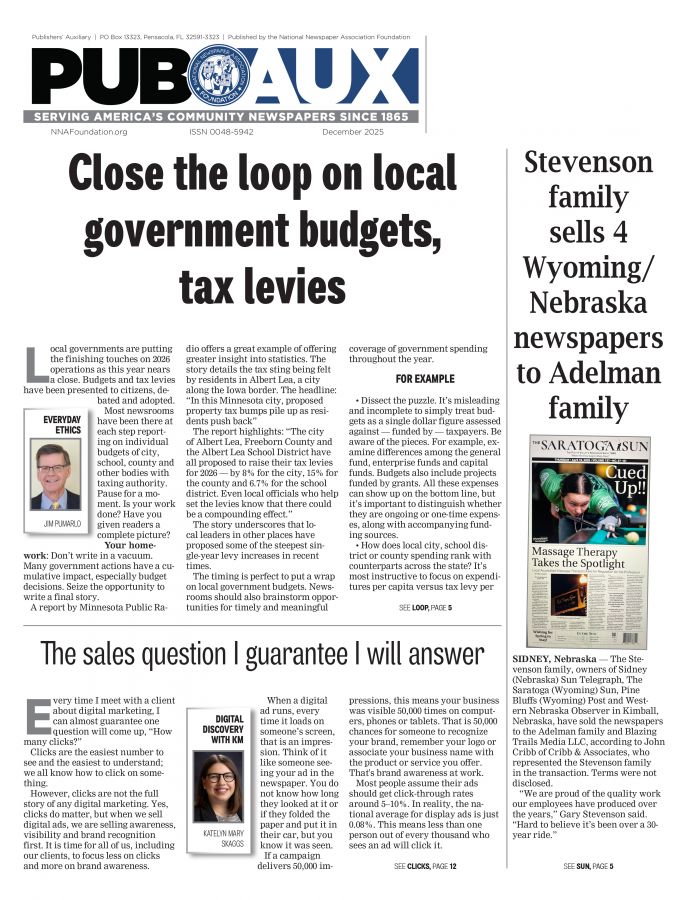‘As a nation claiming to prefer democracy over authoritarian rule, Turkey is very much at odds with itself’
Oct 1, 2013
By Deb McCaslin
Publisher | Custer County Chief, Broken Bow, NE
There is something special that happens when journalists, with common visions, but from different worlds sit down and engage in conversation. Our languages may differ, but the understanding of the greater community’s right to know, of their need to know, remains at the forefront of our common goals and aspirations.
This past July 16, individuals representing the Nebraska Press Association boarded a plane for Istanbul, Turkey. Starting in Omaha and during the next 11 days, we visited five cities, boarded 10 planes and countless buses crisscrossing between Europe and Asia, traveled on a high-speed train and rode a boat down the Bosporus River.
The conversations conducted in newspaper offices, a radio station and TV broadcast center, and with a relief organization were meant to educate, yet they also served the purpose of creating bonds through understanding.
Sponsored by the Niagara Foundation, the cultural exchange of ideas and development of friendships served as the focus of a time well spent.
The images that continue to reappear are ones of diversity and sameness. It is hard to wrap your arms around a part of the world that goes that deep into the past and yet it continues to march forward. The necessity for freedom of the press is critical in any society, but it becomes an even greater challenge when so many worlds governing idealisms collide.
In the U.S., our culture is relatively new when compared to Turkey. Turkish cultures date back millennia. Istanbul was founded in 660 BC as Byzantium. We visited the relics of societies established by the Romans, the Greeks, the early Christians and then the Muslims as advanced through a conquering Ottoman empire. We walked down roads with indentations in stone made by chariots, and traversed in the footsteps of St. Paul, St. John and the Virgin Mary.
Barney McCoy, University of Nebraska College of Journalism professor, worded our experience most eloquently:
“As a nation claiming to prefer democracy over authoritarian rule, Turkey is very much at odds with itself. It has much to sort out in the present and near future. Of course this isn’t unusual for a country whose history is filled with dramatic and often abrupt change over the past several thousand years.
“Turkey is always going somewhere. For the future, hopefully that somewhere will be a place in Turkey where democracy can flourish, human rights and equality will be respected, and free speech as well as a free press are embraced by the Turkish government.”
We begged the bus driver to stop as we passed Taksim Square as the sun was setting and riot police were donning their gear. After all we were adults, and we had cameras—lots of cameras, and we would return. Our guide, tapped with translations, a complicated schedule and the marching orders to keep us safe replied, “Are you nuts?”
The bus kept moving
One week into our trip, Today’s Zaman, the English arm of the Zaman newspaper organization published an article with the headline, “Turkish journalism paralyzed due to growing limits on press freedom.”
These were the same words we heard during our visit to their newsrooms, the English version in Ankara, and the Turkish newsroom in Istanbul. Today’s Zaman Ankara Bureau Chief Abdullah Bozkurt remarked that the finest lawyers could not free their journalists from jail once arrested.
During the National Newspaper Association Convention in Phoenix, AZ, in September, we talked about what is and is not libelous, the ever present Postal Reform—and with excitement—the possibility of a Federal Shield Law. We focused on how to better serve our readers. What we didn’t talk about was having to self-censor and skirt the truth to avoid having our reporters arrested. It wasn’t necessary in the U.S.
In Turkey, self-censorship is a way of life at Today’s Zaman, the newspaper recently had a reporter arrested and convicted because of what he had written. He is married, has children, and he was only doing his job.
According to the Turkish Journalists Union, as reported by Today’s Zaman, 23 Turkish journalists were fired and 37 others forced to resign after the Taksim Square/Gezi Park protests. The Paris-based organization Reporters Without Borders ranks Turkey 154th on a list of 179 countries when it comes to its performance on freedom of the press. Turkey has, per capita, more journalists in prison than any other country in the world.
One reporter at Today’s Zaman, when asked if these arrests made her nervous, responded no—they did not. As long as she reported the truth, she said she was doing what she needed to do and she was going to continue to do what was right to do. Her words immediately gained our respect. This reporter also said that she felt her job was easier than some because her beat was International news, and that it was those who reported on national news and local governments who faced the greater challenge.
The conversation included Turkey’s anti-terrorism laws, which leave little room for freedom of expression and lots of leeway when it comes to reasons to arrest.
The newspaper organization we visited was 25-years old. Technology was state of the art. Bozkurt said that they are proud that in 2008, during Turkey’s financial crisis, they did not lay off a single worker. It took years before the newspaper ran in the black.
Today, circulation is more than 1 million for the Turkish edition and 10,000 for the English edition. The English version is not a translation of the Turkish edition. Bozkurt said, the paper receives no governmental subsidies, and even though it is listed as a free and independent paper, the need to self-edit has increased during the last several years. Bozkurt explained that most papers in Turkey have interests in other businesses. The governmental-driven pressure ends up not on the newspaper, but on the newspapers’ other interests, the business interests that help fund the paper.
What sets this newspaper apart from its competition, he explained, is that all of the papers are delivered through single-copy sales and directly into the homes of the subscribers, even in the rural areas. The other newspapers deliver only in major population centers, and only through single-copy sales.
The Zaman organization subscribes to Reuters and The Associated Press, and also provides a Turkish news agency, the largest in Turkey.
The financial challenges they face sounded a lot like those here at home.
“No paper can make it on subscriptions alone,” he emphasized, “we try to balance the paper. We don’t put in the ads at the expense of the news, the news comes first.”
The company has five printing plants across the country and two online editions, one in Turkish and one in English. The paper is also distributed as a PDF through the Internet. A large number of their readers are students. They have long range plans in place for newsgathering.
Yes, the Nebraska group hit some of the major sites, the great mosques of Istanbul, covering our heads and shoulders and shedding our shoes out of respect for customs and beliefs. And yes, we saw the Mediterranean and Black Seas and crossed the bridge that anchors Europe to Asia over the Bosporus River, where freshwater and seawater shake hands. But it was the evening at an Iftar table with a local family as guests in their home, waiting patiently for the official call announcing that sundown was complete and the fast of the day was over, which was my personal highlight of the trip. After all, it was Ramadan, and we were blessed to be in Turkey, making friends, one person, one family, one newspaper at a time.
Allen Beermann and his wife, Linda, served as trip coordinators, guides and leaders. Steve and Cynthia Haynes, my husband, Norm, and I, Don and Linda Russell, Patty Beutter, and Les and Deb Mann served as the print representatives. Representing the broadcast industry were Pat and Laura Combs, and representing the University of Nebraska College of Journalism were Gary Kebbel and Barney and Joann McCoy.







